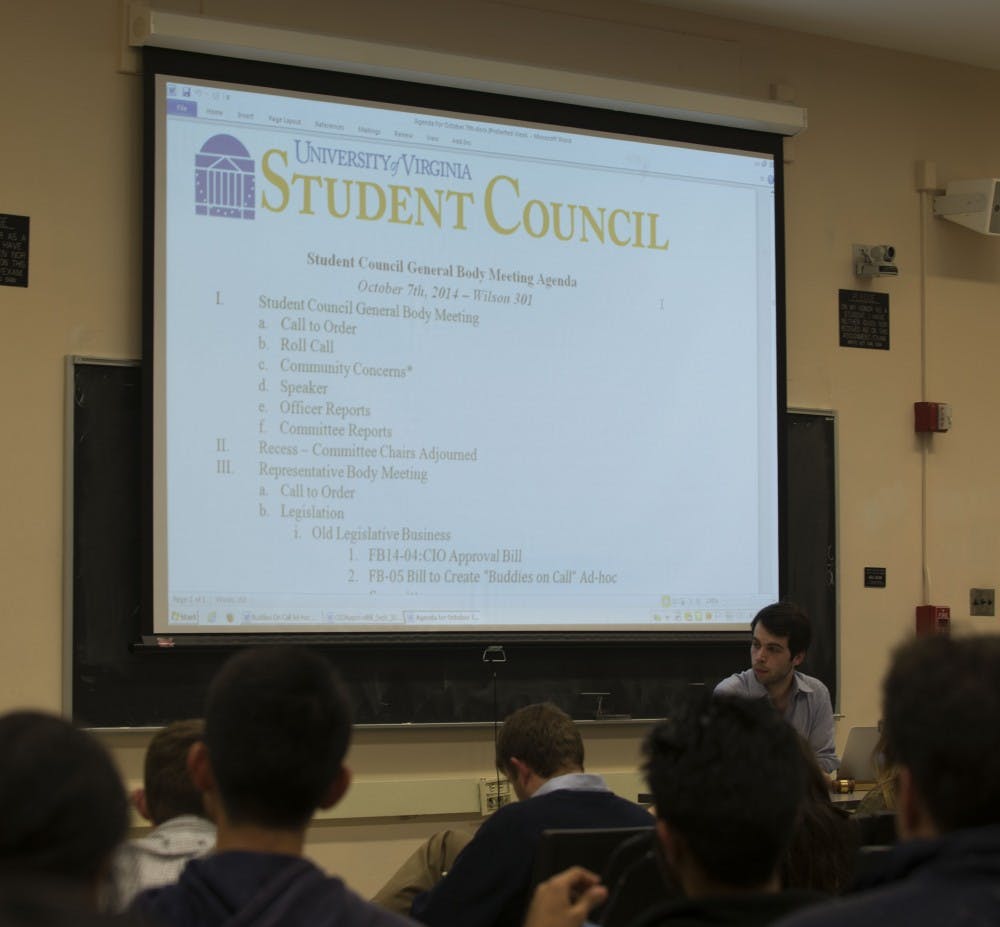Student Council's Legislative Affairs Committee has spearheaded a voter registration drive in recent weeks to garner attention about next month’s midterm elections.
The committee aims to make voter registration as easy and simple as possible for students, who typically have low turnout in midterm elections, and partnered with Virginia21, the Department of Housing and Residence Life and the Center for Politics for the project.
Tracking who can register and who already has will be a challenge for the Committee, said second-year Law student Zach Cohen, one of the committee’s co-chairs. Out-of-state students may not have declared Virginia residency, and in-state students often register with their hometown rather than in Charlottesville.
On a logistical level, the committee does not have access to services such as TurboVote and the State Board of Elections online registration system, which are typically used to track voter registration.
“Our goal is on coverage, making sure that students that want to register have easy ways to go about that,” Cohen said. “Because voting is habitual, if we can have students vote once — be it in the commonwealth or out-of-state, in person or absentee — the chance of them continuing to vote [across] their lifetime is dramatically increased.”
Council sent an email to the first-year class as part of the initiative.
“We were ecstatic to see that hundreds of first year students had clicked a link to register to vote on-Grounds within a day of our sending an email to the first-year class,” Cohen said.
Cohen said students can now use their University IDs to satisfy the voter-ID requirements.
In an article for Politics Prof. Larry Sabato’s weekly newspaper, Sabato’s Crystal Ball, Center for Politics spokesperson Geoffrey Skelley said young voters make up only 14 percent of the midterm electorate, compared to one-fifth of the electorate during presidential elections.
“Every midterm election, … elderly voters are more likely to cast votes in both presidential and midterm years than their younger counterparts,” Skelley said. “But the youth vote could matter in a contest like the one in the 10th Congressional District in Northern Virginia, which is really the only truly competitive federal race in Virginia this cycle.”
Cohen said if youth start to vote in large numbers during the midterm elections and not just during presidential elections, young voters will increasingly become recognized as an important part of the electorate.
“Students collectively can make a substantial difference, particularly in the state and local elections that will occur next year,” Cohen said. “By voting, especially in large numbers, students send our elected officials the message that we are a constituency from which they need support.”
During a visit to the University in September, Sen. Mark Warner said students need to vote during elections to see key changes in issues which interest them, such as student debt.
“One of the only things that could affect policies [created in Washington] or transform them is to increase voter-turnout among young individuals,” Warner said during the speech.







